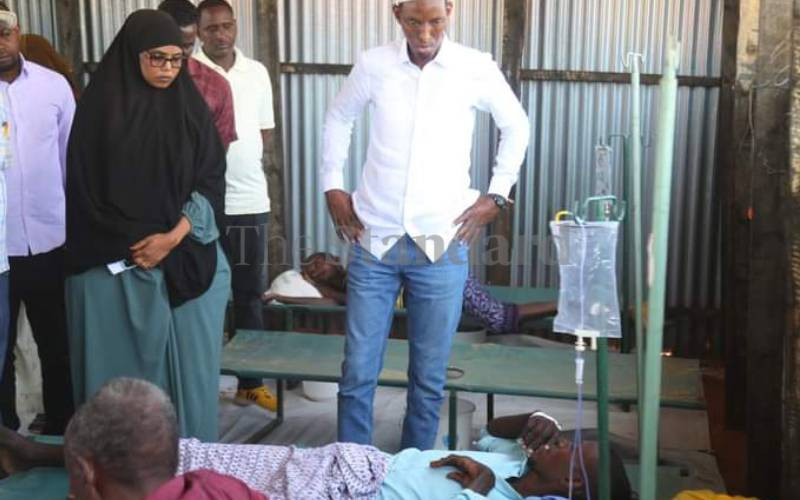×
The Standard e-Paper
Stay Informed, Even Offline

The second wave of the cholera outbreak in Wajir County has hit Siriba and Biyamadhow regions killing three more people to take the death toll to nine in under two weeks. Six patients died a week ago in the county.
Siriba cholera treatment centre has registered the highest number of patients, 135, while 213 have tested positive for the disease in Biyamadhow.